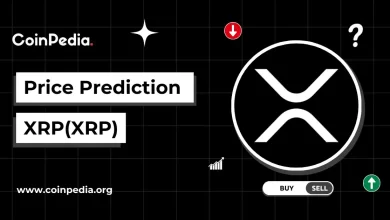
The SEC has decided not to appeal its loss in the XRP case, marking a significant victory for Ripple and the crypto industry.
The SEC's recent acknowledgment that crypto itself is not a security undermined the foundation of its case against Ripple.
This victory could set a precedent for how regulators treat digital assets in the future.
Ripple and the crypto industry scored a major victory as the SEC officially decided not to appeal the XRP ruling, according to WallStreetBulls. This decision marks the end of a lengthy legal battle that has been hanging over Ripple since December 2020.
The case revolved around whether XRP was an unregistered security, casting uncertainty over Ripple’s market operations for nearly three years. Now, with the SEC backing off, Ripple can finally move forward without worrying about further legal hurdles.
So, what led to this sudden shift by the SEC? Let’s break it down.
The SEC’s Shift: Crypto as a Security?
The SEC’s choice not to appeal ties back to its ongoing case against Binance. In that case, the SEC admitted that cryptocurrency by itself doesn’t meet the criteria to be classified as a security. This change in the SEC’s stance weakened its argument against Ripple, leaving little reason to continue the fight.
Initially, Ripple was accused of selling unregistered securities through XRP transactions. However, with the SEC now taking a different stance, pushing the lawsuit further would have been pointless. This move not only brings relief to Ripple but also holds long-term significance for other cryptocurrencies facing similar issues.
Ripple’s Victory – A Game Changer for Crypto?
Ripple’s win is seen as a huge milestone for the broader crypto space. The SEC’s acceptance that crypto isn’t automatically a security could reshape how regulators treat digital assets. This case closure sets a crucial precedent, possibly helping other cryptocurrencies navigate regulatory challenges with more confidence.
Regulatory Clarity When?
Ripple’s Chief Legal Officer, Stuart Alderoty, pointed out that while Ripple has won, the “fair notice” defense remains key for other crypto companies. He criticized the SEC for relying on the 2017 DAO report, which even the SEC admitted was unclear. This highlights that even with Ripple’s victory, there’s still a need for more clarity around crypto regulations.
As Ripple puts this legal challenge behind it, the focus now shifts to how this ruling will impact future regulatory actions. Will the SEC’s evolving stance lead to broader acceptance of cryptocurrencies?
One thing is for sure: Ripple’s win could open doors for greater market adoption and offer a clearer path forward for digital assets.
The SEC’s reversal is a significant development. What are your predictions for the future of crypto regulation?







